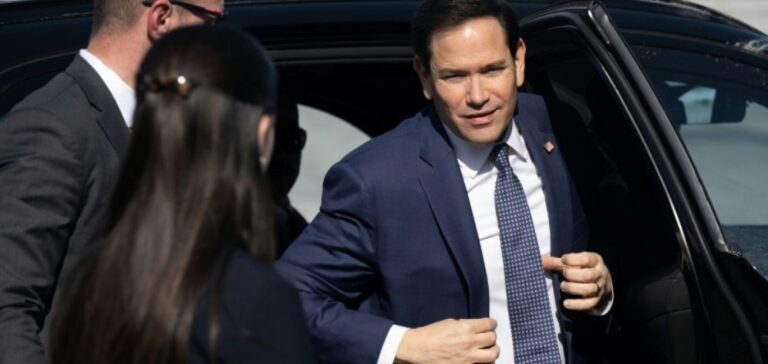U.S. Secretary of State Marco Rubio warned on March 27 that any Venezuelan attack on Guyana or on U.S. oil interests in the country would be met with retaliation. This statement was made during a press conference in Georgetown, amid intensifying border disputes between the two South American states. Rubio specifically cited ExxonMobil, the main operator of Guyana’s offshore oil fields, as a potential target of threats, asserting that such aggression “would end badly” for Caracas.
Guyana is becoming an increasingly central player in the global oil sector, with per capita production projected to exceed that of Qatar and Kuwait. This rise occurs against a backdrop of regional instability, driven by Venezuela’s ongoing claim over the Essequibo region, a 160,000 km² area comprising more than half of Guyana’s territory.
Reaction from Caracas and U.S. strategic deployment
Shortly after Marco Rubio’s remarks, Venezuelan Foreign Minister Yvan Gil dismissed them as “bluster.” On social media, he condemned U.S. interference in the border dispute, calling on the United States to refrain from intervening. The Venezuelan government continues to claim the Essequibo based on historical grounds, referring to the Geneva Agreement signed in 1966, prior to Guyana’s independence.
During his visit, Rubio signed a memorandum of understanding with Guyanese authorities to strengthen security cooperation. This partnership could lead to a U.S. military presence modelled on those in Gulf countries. Guyanese President Irfaan Ali welcomed the initiative, stating that it safeguards the country’s territorial integrity. He is currently completing his presidential term and is seeking re-election at the end of the year.
Historical dispute and oil production
Tensions over the Essequibo were reignited in 2015 following ExxonMobil’s announcement of significant discoveries in contested waters. In 2023, Venezuelan President Nicolás Maduro held a national referendum reaffirming his country’s claim to the region, followed by legislation declaring the Essequibo a new administrative territory, with regional elections planned for May 2025.
Venezuela argues that the Essequibo River is a natural border dating back to the late 18th century, when the area was part of the Spanish Empire. Guyana, however, upholds the 1899 arbitration ruling issued in Paris as legally binding and has brought the case before the International Court of Justice (ICJ) for formal recognition.
Production capacity and geopolitical stakes
ExxonMobil plans to extract 1.3 million barrels per day by the end of the decade. This output would surpass Venezuela’s current production, which struggles to reach 1 million barrels daily. Once one of Latin America’s largest producers, Venezuela has seen its output decline due to structural issues and U.S. sanctions.
Guyana’s rise in the international oil industry comes amid a regional climate marked by political tensions, historical claims, and strategic ambitions. Marco Rubio is expected to continue his regional tour with a visit to Suriname, Guyana’s neighbour, where oil production is also on the rise.






















